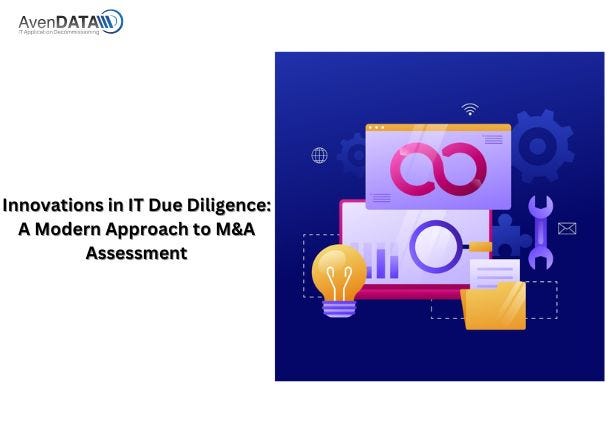Innovations in IT Due Diligence: A Modern Approach to Merger &Acquisitions Assessment

In the ever-evolving landscape of mergers and acquisitions (M&A), the role of Information Technology (IT) due diligence has become increasingly pivotal. As organizations seek to enhance their competitive edge and unlock new opportunities through strategic partnerships, adopting innovative approaches to IT due diligence becomes imperative. In this blog, we delve into the evolving trends and innovations shaping the modern landscape of IT due diligence in M&A transactions.
1. Automated Due Diligence Platforms:
Traditional due diligence processes were often manual, time-consuming, and prone to human error. The advent of automated due diligence platforms leverages technologies like artificial intelligence (AI) and machine learning (ML) to streamline the assessment of vast datasets, expediting the due diligence phase.
Benefits:
- Efficiency: Automated platforms accelerate the due diligence timeline, reducing the overall duration of M&A transactions.
- Data Accuracy: AI-driven algorithms enhance the accuracy of data analysis, minimizing the risk of oversights.
2. Cybersecurity Resilience Assessments:
As cyber threats continue to escalate, evaluating the cybersecurity posture of the target organization has gained prominence in IT due diligence. Innovations in this area involve conducting comprehensive resilience assessments to gauge an organization’s ability to withstand and recover from cyber-attacks.
Benefits:
- Risk Mitigation: Identifying potential vulnerabilities allows acquirers to proactively address cybersecurity risks.
- Compliance Assurance: Ensuring that the target organization aligns with industry-specific cybersecurity regulations.
3. Cloud Readiness Evaluation:
With the widespread adoption of cloud technologies, assessing the target’s cloud readiness has become a crucial aspect of IT due diligence. This involves evaluating the scalability, security, and efficiency of cloud-based infrastructures.
Benefits:
- Scalability: Understanding the scalability of cloud environments helps align IT capabilities with future business requirements.
- Cost Optimization: Identifying opportunities for optimizing cloud expenditures.
4. Data Privacy and Compliance Audits:
Innovations in IT due diligence extend to robust data privacy and compliance audits. Assessing the target organization’s adherence to data protection regulations ensures alignment with legal requirements and mitigates regulatory risks.
Benefits:
- Legal Compliance: Avoiding legal ramifications associated with data mishandling.
- Brand Reputation: Demonstrating a commitment to data privacy safeguards the reputation of the acquiring organization.
5. Predictive Analytics for Technology Roadmaps:
Predictive analytics tools are being employed to assess the future technology roadmap of the target organization. This involves evaluating the potential impact of emerging technologies on the target’s operations.
Benefits:
- Strategic Planning: Anticipating technological shifts aids in strategic planning for post-acquisition integration.
- Innovation Alignment: Ensuring that the target’s technology roadmap aligns with the acquirer’s innovation goals.
Conclusion
As M&A transactions become more intricate, leveraging innovative approaches to IT due diligence is essential for informed decision-making. The integration of automated platforms, cybersecurity resilience assessments, cloud readiness evaluations, data privacy audits, and predictive analytics enhances the acquirer’s ability to navigate the complexities of the due diligence process successfully. By embracing these innovations, organizations can not only expedite the M&A timeline but also position themselves for long-term success through effective integration and synergy realization.
